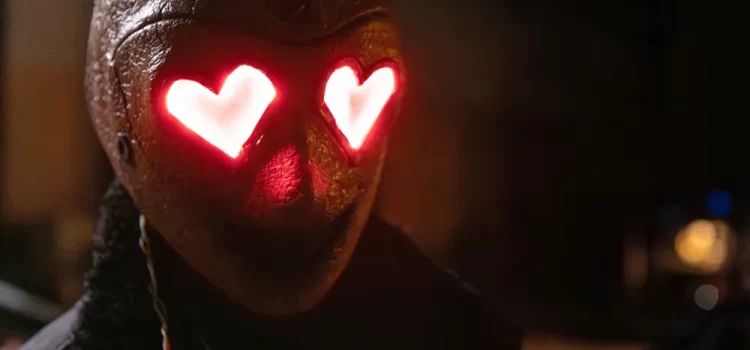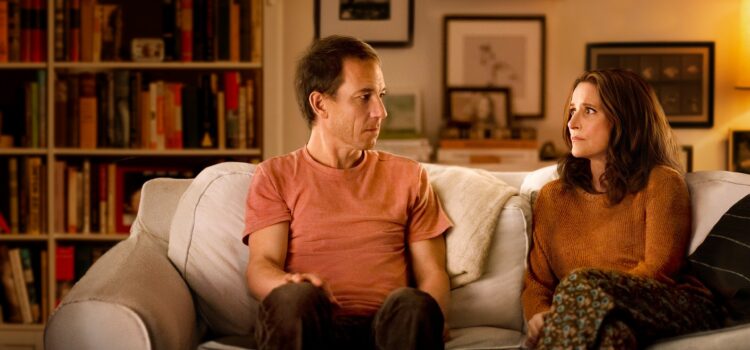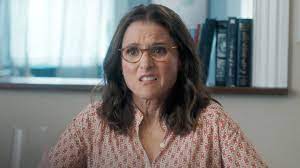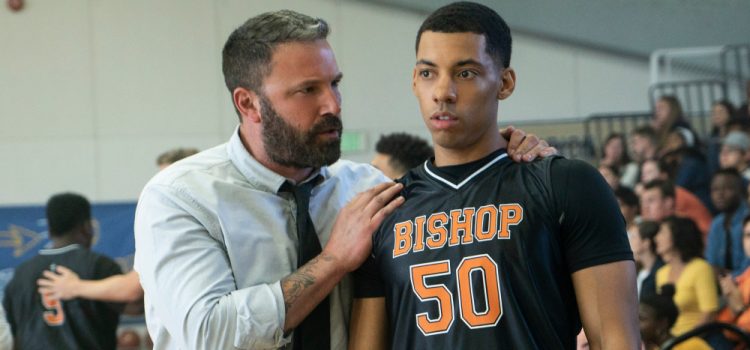By Alex McPherson
Neither scary nor swoonworthy, director Josh Ruben’s “Heart Eyes” is a horror-rom-com hybrid that is amusing but never truly carves out its own spot among its influences.
We follow Ally (Olivia Holt), an advertising exec at a Seattle jewelry company who has given up on romantic love. In fact, her “ingenious” new ad campaign proposal revolves around doomed cinematic romances. This idea doesn’t go over well with her boss (Michaela Watkins, with a cartoonish southern drawl) and on social media, given that there’s a killer on the loose — a masked murderer with heart-shaped eyes, who has employed copious tools for impaling, slicing, and dicing unsuspecting couples on Valentine’s Day for the past two years.
The Heart Eyes Killer has arrived in Seattle, and, as evidenced by a suitably gnarly cold open involving a staged proposal, literal “camera cut,” and novel use of an industrial grape press, they’re as bloodthirsty as ever.
But, for the time being, Ally isn’t all that concerned, given that she’s written off true love as a myth. In typical rom-com fashion, she bumps into the extroverted and charismatic Jay (Mason Gooding) at a coffee shop, and sparks fly. Their first interaction is awkward, cute, and, given the film’s propensity for slapstick violence, quite bloody, ending with Ally and her best friend (Gigi Zumbado) awkwardly rushing out of the building.
It turns out, however, that Jay was just hired at Ally’s company to help clean up her PR mess with the ad campaign, and he’s eager to take her out for dinner to discuss a new marketing plan — after his yoga session in a nearby spa.
Ally agrees to meet Jay at a swanky restaurant (complete with a cheesy dress-shopping montage beforehand), but she remains emotionally guarded, unwilling to welcome this (overeager) Mr. Right into her life. Their meet-up is decidedly awkward and uncomfortable, exacerbated by a run-in with Ally’s ex and his girlfriend. Ally kisses Jay to make her ex jealous, which catches the attention of the Heart Eyes Killer lurking nearby.

Thus, Ally and Jay are on the run from the sadistic slayer, eventually encountering a pair of detectives, Zeke Hobbs (Devon Sawa) and Jeanine Shaw (Jordana Brewster) — yes, it’s a joke about the “Fast & Furious” spinoff film “Hobbs and Shaw” — who are determined to catch the killer once and for all. Plus, love is in the air, or whatever.
“Heart Eyes” has a solid premise — parodying two conflicting genres for a Valentine’s Day film with as much cheesy romance as ultraviolent mayhem. But to what end, exactly? Ruben’s film is enjoyable, but lacks the cleverness and wit to truly stand out. It tries to have the best of both worlds while remaining firmly in bland territory, no matter how cheekily self-aware it thinks it is.
That’s not to say “Heart Eyes” is a bad film, just an insubstantial one. It is too obvious in its humor and structure to leave much of an impression beyond mild enjoyment. Holt and Gooding make a solid pairing, with nice chemistry that makes their gradual attraction believable, if not easy to become invested in.
Neither actor is given much to work with from a “dramatic” perspective, and the screenplay by Christopher Landon, Michael Kennedy, and Phillip Murphy relies on broad, reference-heavy humor that’s both trying too hard and not hard enough to earn its laughs and scares.
“Heart Eyes” ultimately embraces the clichés of both rom-coms and slashers without meaningfully subverting them. The Heart Eyes Killer itself, for example, is seemingly a combination of Jason Vorhees, Batman, and V from “V For Vendetta,” stalking around in the shadows with a full toolbelt of weapons underneath their jacket. Except this time, their mask has two glowing red hearts where eyes should be.
Indeed, “Heart Eyes” is content to coast on tropes without presenting much of anything surprising within the genres it parodies and, clearly, has affection for., Instead, it insists that its competent mediocrity on both the horror and romance fronts is enough to excuse an ultimate lack of ideas.
Jump scares are aplenty, laws of space and time are thrown out the window, and the ultimate “reveal” is eye rolling, to say the least. But Holt and Gooding are charming, the kills are gnarly, and the film’s seemingly perpetual scenes of cat-and-mouse pursuits are engagingly helmed and keep the film moving at a fast clip.
Through all the bloodshed, Ruben’s film maintains an innocence and belief in the power of love that’s endearing, and, for Valentine’s Day fare at the movies, what more could you ask for? “Heart Eyes” doesn’t aim for “classic” status; it’s a fun, harmless little trifle that won’t break anyone’s heart.

“Heart Eyes” is a 2025 horror-romance directed by Josh Ruben and starring Olivia Holt, Michael Watkins, Mason Gooding, Gigi Zumbado, Jordana Brewster, and Devon Sawa. It is rated R for strong violence and gore, language and some sexual content., and the run time is 1 hour, 37 minutes. It opened in St. Louis Feb. 7. Alex’s Grade: B-.
Alex McPherson is an unabashed pop culture nerd and a member of the St. Louis Film Critics Association.






